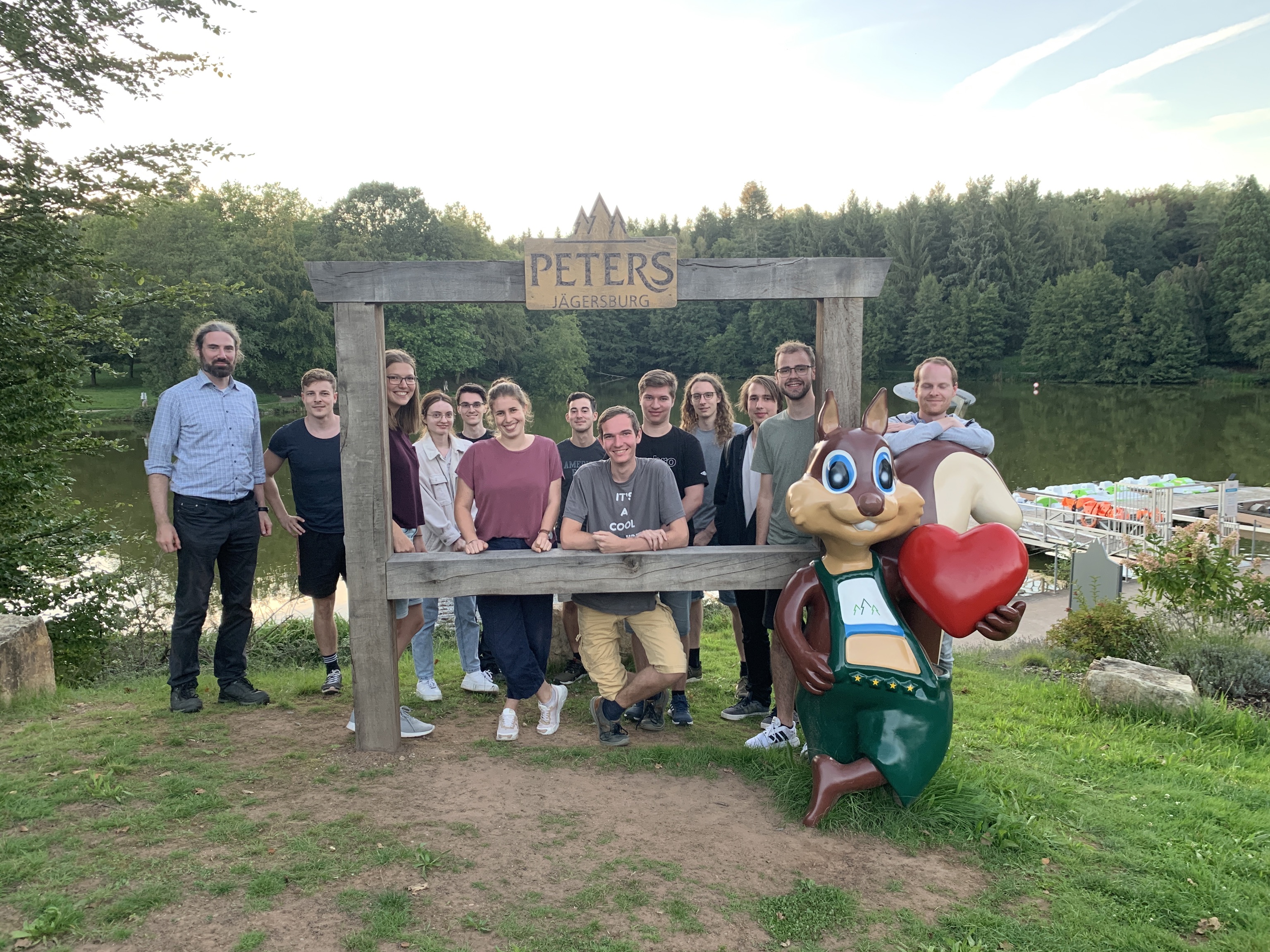Group on »Finding Cracks in Concrete: How Good Do the Images Have to Be?«
Supervisors: Christian Jung and Tin Barisin, AG Statistik, Department »Mathematics«, RPTU Kaiserslautern-Landau and Anna Nowacka, Department »Image Processing«, Fraunhofer ITWM.
Concrete is a brittle material, cracks are normal and occur in large quantities. The formation and propagation of crack structures in concrete specimens provides information about the material properties of the concrete mix under investigation and is tested in standardized tests. The complex crack structures can be imaged with the aid of computed tomography (CT). A prerequisite for the analysis of the cracks using the reconstructed CT images is the segmentation of the cracks in the gray scale image. In this project, we investigate different methods for segmenting cracks in 2D image data – one from machine learning and one from classical image processing. In each case, the basis is images of concrete with (synthetic) cracks and their ground truths. The goal of the project is to investigate the robustness and goodness of the methods with respect to varying degrees of noise and the selection of training data.
At the end of the project, answers to the following questions in particular should be found:
- How does the performance of the methods change with different degrees of noise in the images?
- Can the performance be influenced by the type of training data?
- Can the methods also be applied without problems to image data containing other types of concrete and cracks?
